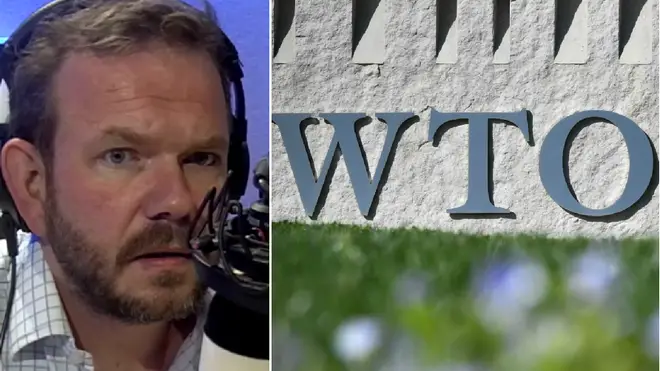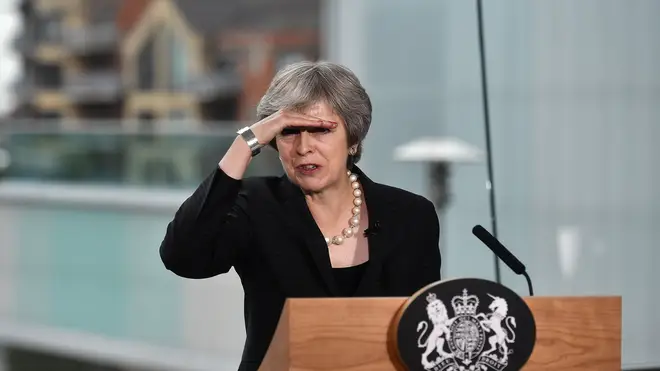
Daniel Barnett 9pm - 10pm
25 July 2018, 12:52
After this expert told James O'Brien exactly what would happen if Britain starts trading under WTO rules, his response was really concerning.
"I knew this wasn't going to be pretty," he said, "but I didn't think it was going to be this ugly."
Bryce Baschuk, a Bloomberg Correspondent writing specifically about the World Trade Organisation, explained the process for trading on WTO, which Britain would need to do if we leave the EU without a trade deal.
Leading Brexiteers insist that this would be an opportunity for the country, as many countries already trade on these rules with no problem.
But Bryce explained how it would work - and as James says, it isn't pretty.

Describing the positives of WTO rules, he said: "Ideally, the UK would be able to strike new free trade deals with countries such as the US that it believes it wouldn't be able to do with the European Union.
"In addition, it would have the freedom to not be beholden to the European Court of Justice and have more independence or sovereignty over its trading relations."
But the method of getting there seems particularly difficult.
Yesterday, both the UK and the EU filed documents in Geneva outlining the terms they will use to trade with the rest of the world after Brexit - and the two submissions are fundamentally different.
Bryce explains: "The UK is currently a WTO member in its own right. The issue is it does not have an independent schedule of concessions for the WTO - that's the menu upon which Britain trades with the rest of the world.
"It needs to have that if it's going to strike trade deals. And the way that its approach is different from that of the EU is the UK wants to replicate its current trade WTO commitments by making just a few technical changes and then submitting it to the WTO for certification."
The problem is that the UK's terms at the WTO are enshrined in our membership of the EU, so this approach seems optimistic as our market will be smaller than the EU's market.

He continued: "The rest of the WTO membership now have 90 days to raise their objections. As WTO members, everyone has a right to say whether their trade would be affected. I'm told several major countries are already planning to object to the UK's approach.
"The US, Brazil and New Zealand have already said they don't agree to the UK's plan. A major sticking point for them is the fact that the EU and the UK share a quota system that limits imports of sensitive goods like beef, lamb and sugar. The UK cannot simply replicate these quotas and has proposed to split them with the EU based on historical trade flows."
All of this means that if and when they object and ask for a better deal, Britain will be simultaneously be negotiating a trade deal with the EU and the WTO.
Of trading with the WTO countries, Bryce warns: "There are no sharks in Lake Geneva, but the WTO is full of them. They smell blood in the water and they're going to demand their pound of flesh."